Your Financial Planning Calendar for 2020
Whether or not you make financial New Year’s resolutions, you no doubt want to improve your bottom line in the coming year.


Profit and prosper with the best of Kiplinger's advice on investing, taxes, retirement, personal finance and much more. Delivered daily. Enter your email in the box and click Sign Me Up.
You are now subscribed
Your newsletter sign-up was successful
Want to add more newsletters?

Delivered daily
Kiplinger Today
Profit and prosper with the best of Kiplinger's advice on investing, taxes, retirement, personal finance and much more delivered daily. Smart money moves start here.

Sent five days a week
Kiplinger A Step Ahead
Get practical help to make better financial decisions in your everyday life, from spending to savings on top deals.

Delivered daily
Kiplinger Closing Bell
Get today's biggest financial and investing headlines delivered to your inbox every day the U.S. stock market is open.

Sent twice a week
Kiplinger Adviser Intel
Financial pros across the country share best practices and fresh tactics to preserve and grow your wealth.

Delivered weekly
Kiplinger Tax Tips
Trim your federal and state tax bills with practical tax-planning and tax-cutting strategies.

Sent twice a week
Kiplinger Retirement Tips
Your twice-a-week guide to planning and enjoying a financially secure and richly rewarding retirement

Sent bimonthly.
Kiplinger Adviser Angle
Insights for advisers, wealth managers and other financial professionals.

Sent twice a week
Kiplinger Investing Weekly
Your twice-a-week roundup of promising stocks, funds, companies and industries you should consider, ones you should avoid, and why.

Sent weekly for six weeks
Kiplinger Invest for Retirement
Your step-by-step six-part series on how to invest for retirement, from devising a successful strategy to exactly which investments to choose.
Whether or not you make financial New Year’s resolutions, you no doubt want to improve your bottom line in the coming year. With that in mind, we have some suggestions for bolstering your finances each month, ranging from budgeting in January to checking up on your insurance coverages in April to reviewing your estate plan in October.
March, as the bull market approaches its 11th anniversary, looks like a good time to reflect on your investing philosophy and tolerance for risk. And if your charitable giving has been thrown for a loop by the new tax law, consider setting up a donor-advised fund. We’ve slated that for December.

January
- Map out a spending and savings plan. Budgeting may seem like a bore, especially as the winter doldrums set in. Rather than think of it as a financial killjoy, view it as a way to ensure that you have enough money for what you truly value and enjoy—say, a secure retirement and a vacation or two every year. A popular budgeting guideline suggests keeping essential expenses, such as for a mortgage or rent, utilities, insurance, and groceries, to about 50% of your spending. Debt repayment and savings should take up 20%, and “wants,” such as dining out and cable TV, make up the final 30%.
- Set up retirement account contributions. Once you’ve decided how much you can afford to direct to retirement savings, tweak your monthly contributions to your 401(k) or IRA. You can contribute up to $19,500 to a 401(k) in 2020, plus $6,500 in catch up contributions if you’re age 50 or older. The IRA contribution limit is $6,000, plus $1,000 in catch-up contributions for those 50 and older.
- Get a dividend every month. With a strategic selection of stocks, you can generate income from dividends each month. The December 2019 issue of Kiplinger’s Investing for Income includes 12 stock picks to keep the cash coming in all year.
Plenty of tools are available to keep you on target. Mint is a go-to app for creating a customized budget, including charts to visualize your cash flow. With Goodbudget, you set limits by designating virtual envelopes of cash for each budget category. To fill in a detailed budget line by line, check out our interactive Household Budget Worksheet.
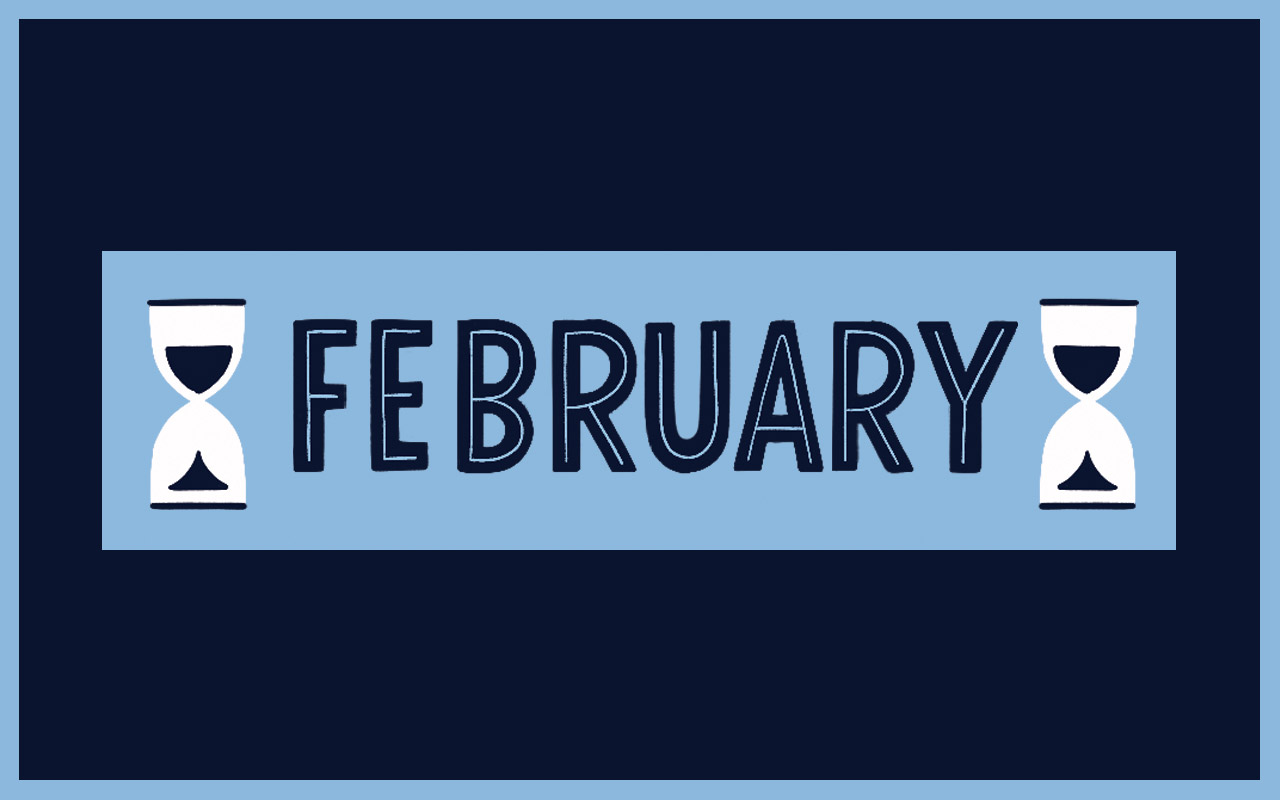
February
Flowers, chocolates and financial talks. Valentine’s Day is this month. Unromantic as it may sound, sitting down with your sweetheart to talk finances is key to a more fulfilling—and maybe longer-lasting—relationship. In a survey from personal finance website MagnifyMoney, 21% of divorced couples said that money was the cause of their split. The higher their income, the more likely money was the culprit.
If your relationship is getting serious or you’ve been avoiding the money talk, have an honest conversation about what financial accounts you have, any debt you’re carrying, what your credit score is, and your attitudes toward spending and saving. Consider whether you’ll merge your bank and investment accounts, keep them separate, or construct a combination of independent and joint accounts. Longtime couples are wise to have regular money talks, too—say, each month or quarter—to stay on the same page about their budget, investments and goals. Test your savvy when it comes to money and relationships with our Couples & Money Quiz.
- Plan your summer vacation. If you’re traveling to a popular destination this summer, book lodging before it sells out. Now is also a good time to set up fare alerts for flights with a tool such as Google Flights, Hopper or Kayak. But don’t buy yet—you may get the best price if you wait to book domestic trips about 45 days in advance and international trips about 75 days in advance, says Hayley Berg, of Hopper.
- File your tax return. By the end of January, your 1099 and W-2 tax forms should be in the mail. Avoid the last-minute scramble and submit your tax return now. Acting early may also prevent identity thieves from using your Social Security number to file a fake return and claim a refund.
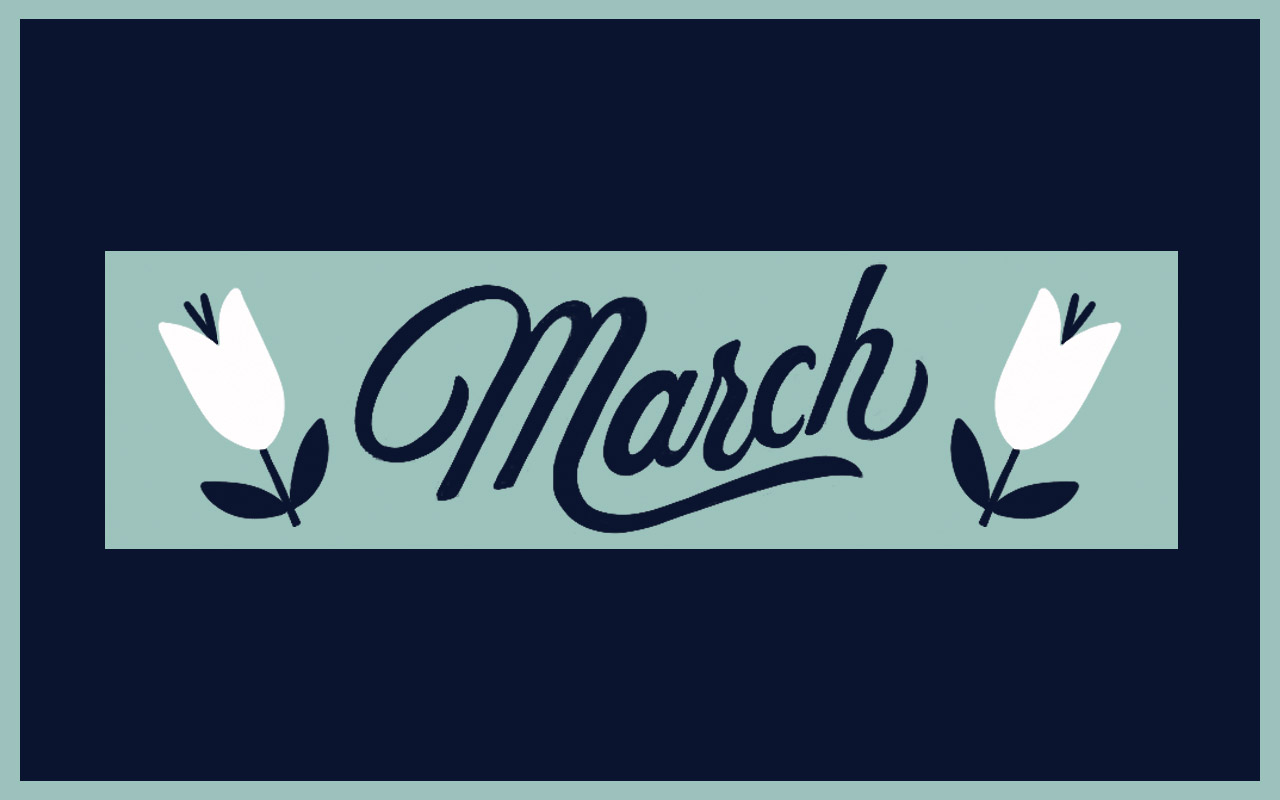
March
- Pen your investing constitution. If the bull market continues its record-breaking run, its 11-year anniversary will be March 9. But inevitably, the bear will come out of hibernation at some point. To help you stay moored when the investing waters get choppy, create a list of tenets that you’ll follow no matter what the market is doing. You may, for example, vow to maintain an asset allocation that reflects your appetite for risk; to avoid hasty decisions to purchase or sell stocks; to buy a mutual fund only if its expense ratio is below a certain percentage; to ignore day-to-day chatter on CNBC (or from your friends) that may sway you from your plan; to never attempt to time the market; and to hold only investments that you understand.
- Clean out your FSA. If your employer offers a grace period to use up flexible spending account funds from the 2019 plan year, it expires March 15. See a list of eligible medical expenses at https://fsastore.com/fsa-eligibility-list.aspx.
- Kick off IRA withdrawals. If you turned 70½ in 2019 and didn’t take a required minimum distribution from your IRA, put in an order with your financial institution. If you don’t take your first RMD by April 1, you may owe a 50% penalty on the required distribution amount.
If you work with an adviser, you may have already drafted a similar document, known as an investment policy statement. It’s designed to clarify your investment strategy and goals, providing a guideline for both you and your adviser.
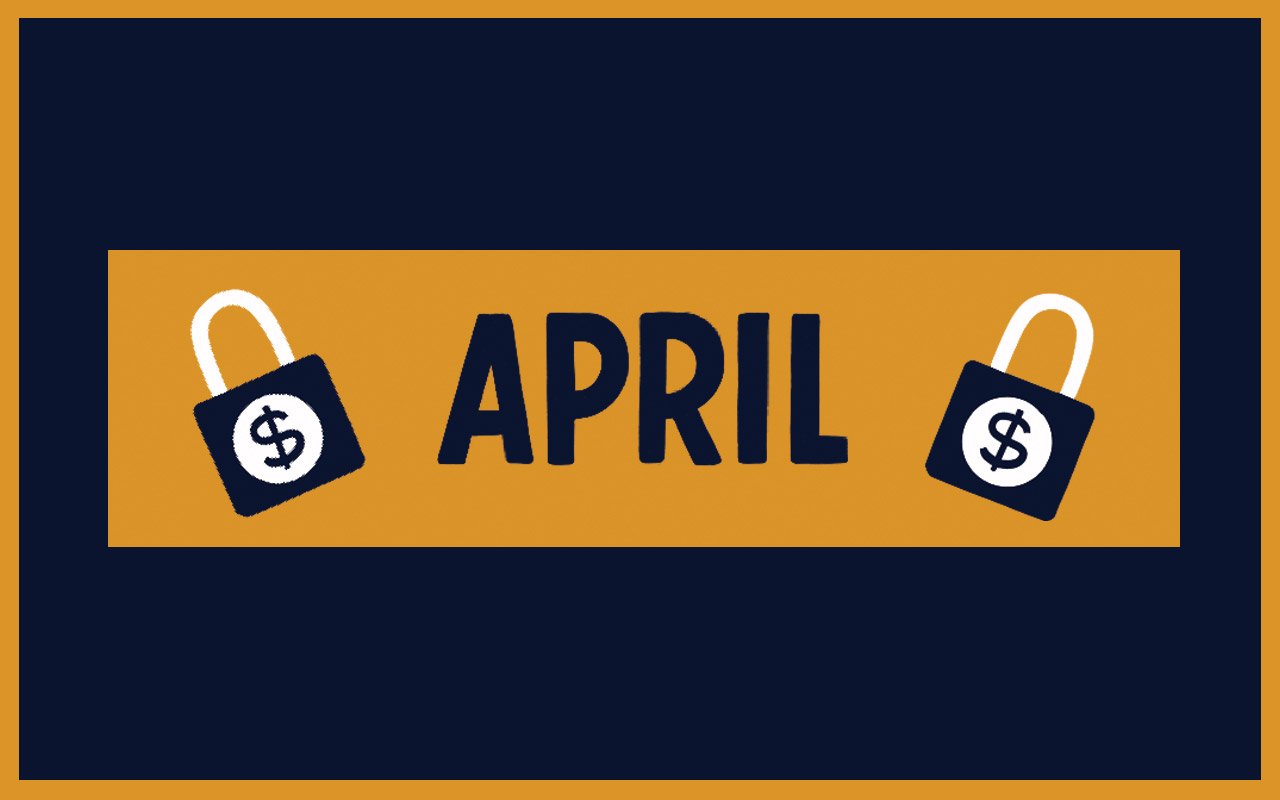
April
- Review your insurance coverage. Re-shopping your auto and homeowners insurance every year could save you a bundle in premiums over the long run. Sites such as Insurance.com, Policygenius.com and InsuranceQuotes.com provide quotes from several insurers, or find an independent agent at www.trustedchoice.com.
- Fund your IRA and HSA. You have until tax day, April 15, to make a 2019 contribution to a traditional or Roth IRA and to a health savings account. You can stash up to $6,000 in an IRA for 2019 ($7,000 for those 50 and older). The 2019 HSA contribution limit is $3,500 for single coverage or $7,000 for family coverage (plus an extra $1,000 if you’re 55 or older).
- Save the earth—and your money. April 22 is Earth Day. Consider switching to Energy Star appliances, which can trim your utility bills. If you’d like to install alternative-energy equipment, such as solar panels or a geothermal heat pump, act soon. You can deduct 26% of the installation cost on your federal tax return for 2020, or 22% for 2021.
Even if you’re happy with your current policy, you may be able to find ways to save money on it. Increasing your deductible, for example, usually lowers the premium. See whether you can get discounts for holding auto and homeowners policies with a single insurer, or by paying premiums annually instead of monthly. If you’ve made improvements to your house or have accumulated valuable items, you may need to boost your homeowners coverage.
This is a good time of year to evaluate flood insurance, too. A flood policy typically doesn’t become effective until 30 days after you buy it, and you’ll want to have it in place before hurricane season begins. At www.floodsmart.gov, you can look up flood risk in your area and find providers of federally backed flood insurance.

May
- Spring cleaning for your financial records. With tax season behind you, take time to sift through your records. It’s wise to hold on to copies of your tax returns forever. Typically, the IRS has three years from the date you file your tax return to start an audit, so you should keep supporting documents that long. (If you’re self-employed, keep them six years—that’s how long the IRS has to audit you if you under report your income by 25% or more.) Such documents may include Form W-2s reporting income from an employer; Form 1099s reporting income, interest, dividends and capital gains; Form 1098s reporting mortgage interest; year-end investment statements; receipts for charitable contributions; and records of contributions to a tax-deductible IRA.
- Check tax withholding. If you got a big refund or owed a hefty bill after filing your tax return for 2019, adjusting how much tax your employer withholds from your paycheck should put you on a more even keel for 2020. Use the IRS's Tax Withholding Estimator to find the right amount of withholding for you, then submit an updated Form W-4 to your employer. (The IRS revised the W-4 form for 2020.)
- Prep your home for the summer. Before heat and storms come your way, make sure your air conditioner and outdoor irrigation system are in working order. To be ready for storms, trim any tree branches that are at risk of falling onto your property, clean the gutters, and inspect your roof for missing or damaged shingles.
Keep pay stubs until you match them with your W-2s, and keep monthly brokerage statements until you check them against year-end statements and 1099s. You can usually trash receipts for purchases, ATM withdrawals and bank deposits after you match them with your monthly credit card and bank statements. Run documents you’re discarding through a shredder.
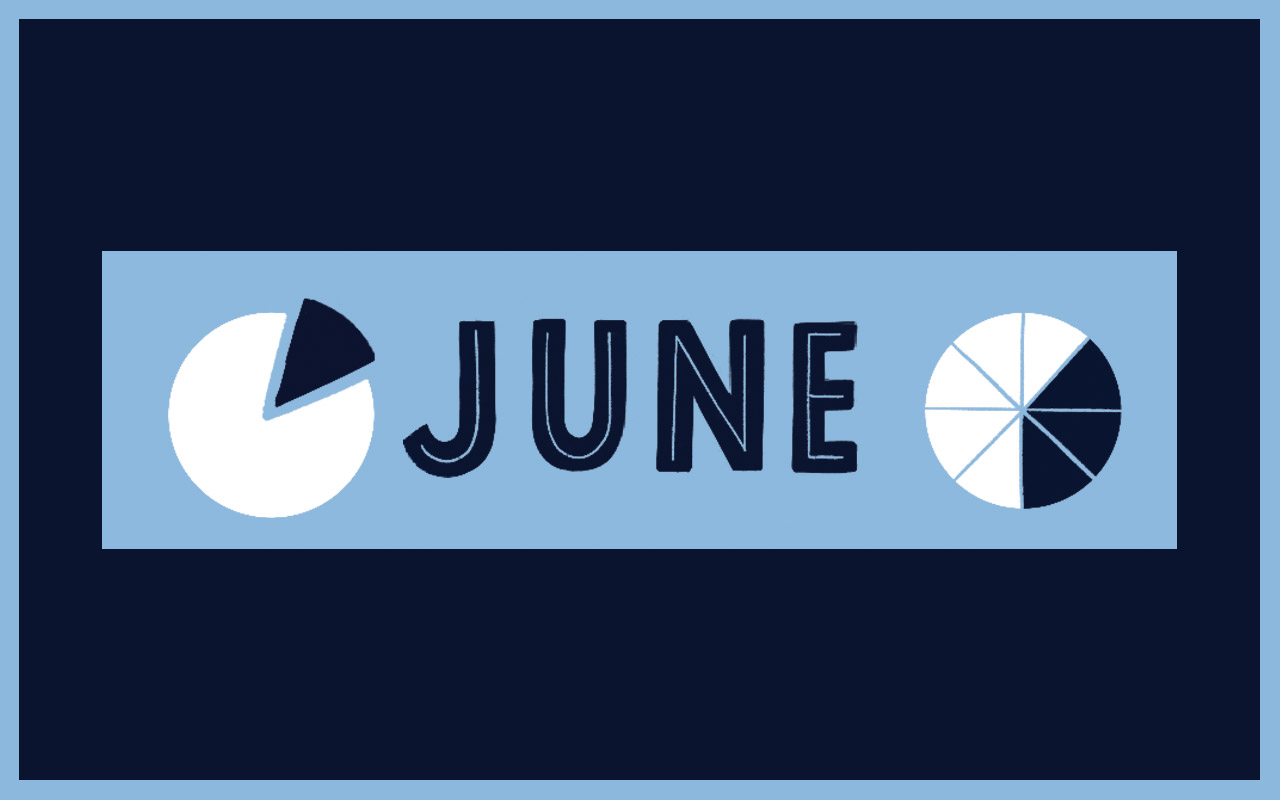
June
- Rebalance your portfolio. Is your asset allocation still on target? If some investing categories have performed well recently, they may be overrepresented in your portfolio, and laggards may be underrepresented. If stocks are taking up too much space, for example, you can shift some equity holdings to bonds and cash. Check your asset mix at least twice a year, or anytime the market undergoes a big fluctuation.
- Whip yourself into shape—at a discount. With New Year’s resolutions in the rearview mirror and warm weather beckoning fitness buffs outdoors, gyms often run specials during the summer, such as waived fees for new members or lower monthly rates.
If you log in to your investment account online, you may see tools that show a breakdown of your allocation. Or link your account to Personal Capital, which displays your asset mix in a colorful chart and, with its free Investment Checkup tool, recommends a target allocation based on questions that you answer. Morningstar’s Instant X-Ray also provides a detailed review of your holdings, including allocation. The tool is free, but you must register with Morningstar.com.
Keep tabs on your credit reports. If you haven’t claimed your free annual credit reports in the past 12 months, get them from Equifax, Experian and TransUnion at www.annualcreditreport.com. Review them for errors or signs of fraud, such as credit accounts that you don’t recognize. Sign up for alerts of significant changes in your reports with services such as CreditKarma.com and FreeCreditScore.com.
If you were affected by Yahoo’s data breaches between 2012 and 2016, you have until July 20 to claim two years of free monitoring of your reports from all three bureaus (or a cash payment, if you already have monitoring) at www.yahoodatabreachsettlement.com.

July
- Hire a fiduciary adviser. Or check up on your current adviser. June 30 is the date for the Certified Financial Planner Board of Standards to begin enforcing a rule that requires CFPs to act in a client’s best interests at all times when providing financial advice—not just when offering financial-planning services, as the previous standard required. On the same day, regulations are also set to go into effect that require brokers to act in their clients’ best interests, although consumer advocates say the rules lack teeth. You can search for a fee-only planner, who does not accept commissions for selling financial products, at www.napfa.org. Or ask your adviser to sign a fiduciary oath—you can download one at www.thefiduciarystandard.org.
- Midyear tax checkup. See whether you can take steps to lower your taxable income for 2020. One idea: Boost contributions to tax-advantaged accounts, such as a 401(k), IRA or health savings account. If you’re 70½ or older, you can transfer up to $100,000 per year directly to charity without the distribution counting toward your adjusted gross income. Plus, the transfer qualifies as a required minimum distribution.
Find two or three planners to interview, and ask about their fee structure, certifications, areas of specialty, whether they have other clients whose financial situations are similar to your own, and their overall philosophy toward financial planning and investing.
Grab a great deal. Although Amazon keeps the date hush-hush, the retailer’s annual Prime
Day sale has always taken place in July. Members of Amazon’s Prime service ($119 a year) get access to discounts on a variety of products—especially Amazon’s own items, such as Kindle e-readers, Fire TVs and Echo smart speakers. Competitors such as Walmart and Target often launch their own sales, too.

August
- Pay down debt. If high-interest debt is weighing on your balance sheet, make a plan to wipe it out. Plotting a strategy now will help you avoid falling further into debt during the upcoming holiday-shopping season.Credit card debt, which carries an average rate of about 17%, should be a priority. Transferring the balance to a card with an introductory 0% rate or a low ongoing rate may be a good move. Or consider paying it off with a personal loan or home-equity line of credit, which likely comes with a lower rate than your credit card.If you have high-rate private student loans, you may benefit from refinancing them. Variable rates from online lenders recently ran as low as about 2% for borrowers with great credit and a healthy debt-to-income ratio. Sites such as SuperMoney.com and LendingTree.com let you compare offers from various lenders. You may be able to lower your federal loan rate by refinancing, too, but you’d lose key protections.
- Back-to-school bargains. Several states have a track record of waiving sales taxes on items such as clothing, computers and school supplies, typically during a weekend in August. You can also check sites such as DealNews.com and Offers.com for updates on the best deals.
- Cut the cable cord. Many TV shows will premier their new seasons in the coming months. See whether you can watch your favorite shows at a lower price by switching from cable to an antenna or video-streaming service, such as Sling TV or Hulu + Live TV. Summer is also the best time to negotiate a lower bill for high-speed internet, according to a BroadbandNow study.
If you’re struggling to keep your debt under control, contact the National Foundation for Credit Counseling at 800-388-2227. Its nonprofit member agencies offer affordable debt-management services.

September
- Save for college. As students hit college campuses this fall, consider opening a 529 college-savings plan for any of your children (or grandchildren) who are likely to have higher-education expenses in the future. Contributions to a 529 grow tax-free, and withdrawals aren’t taxed if you use them for qualified expenses, such as tuition, room and board, books, and computers. You can choose a 529 plan from any state, but many states offer a tax credit or deduction on contributions for residents who use their own state’s plan. See how the plans stack up at kiplinger.com/links/529s.
- Winterize your home. Protect against upcoming cold weather by tuning up your heating system, caulking around windows and doors, draining exterior faucets and reversing your ceiling fans. For more ideas, check out the October 7th episode of Kiplinger’s Your Money’s Worth podcast.
If you live in one of the 16 states that don’t offer a tax break—or if your state provides a tax break regardless of which state’s plan you choose—it’s worth comparing options from around the country. Direct-sold plans typically come with lower fees than broker-sold ones. Morningstar rates 529 plans on factors including investment options and performance, fees, and management.
Get a jump on holiday travel plans. Heading out of town for Thanksgiving or Christmas? You may save money if you book your flights before Halloween. “Prices remain fairly stable in September and October,” says Hopper’s Hayley Berg.
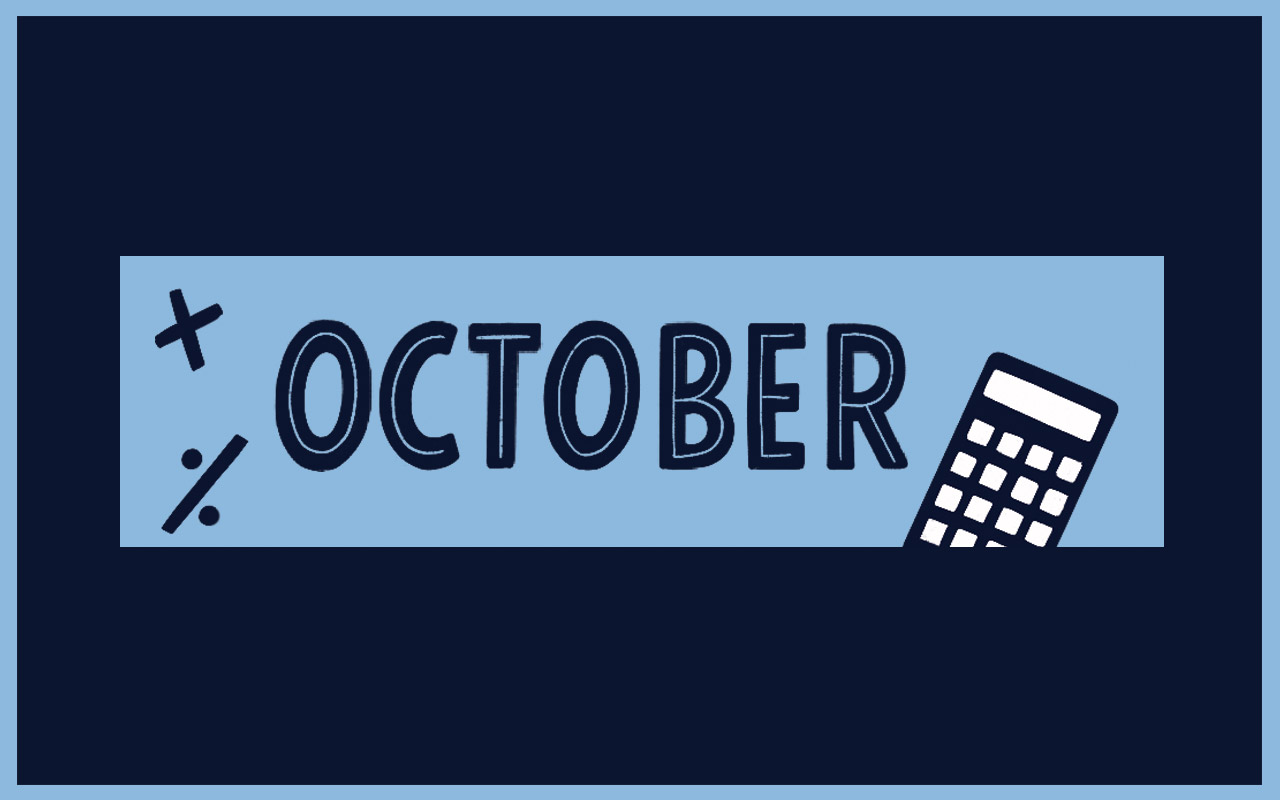
October
- Put your estate plan in order. National Estate Planning Awareness Week is in October. What better time to make sure your will and other estate documents are up to date? It’s especially important if you’ve recently gotten married, had a child, experienced the death of a family member or had a significant change in finances—say, a big windfall. If your estate plan is simple, you may get away with generating your own will at a site such as LegalZoom.com, which offers packages starting at $89. Otherwise, it’s best to hire an attorney. And the more complex your situation, the more you’ll benefit from the help of a wealth or estate planner, too.
- Fill out the FAFSA. The Free Application for Federal Student Aid for the 2021–22 school year should be released October 1. You’ll have until June 30, 2021, to submit the form for federal aid, but fill it out as soon as possible because some states and schools award money on a first-come, first-served basis or impose deadlines earlier than the federal one.
- Tax-return deadline, part two. If you got an extension to file your 2019 tax return, it’s due October 15. And note that you should have paid at least 90% of any tax owed for 2019 by April 15, 2020, to avoid interest and a penalty.
Other documents to create or update include a durable power of attorney, allowing a representative you designate to handle your financial and legal matters if you become incapacitated; a durable medical power of attorney, through which an appointed person can make medical decisions for you; and a living will, which outlines your wishes regarding medical treatment if you can’t communicate them yourself. Also check that you have listed the appropriate beneficiaries for your retirement and financial accounts and life insurance policy.
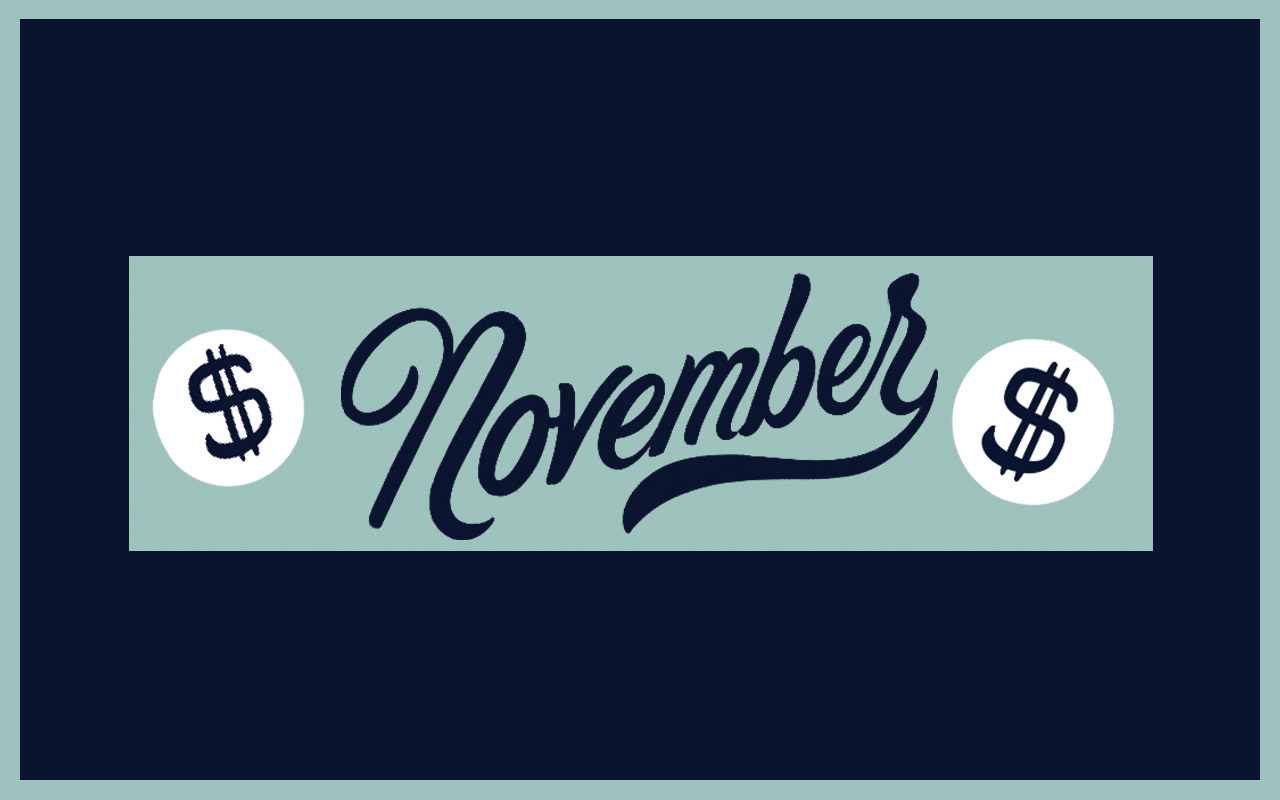
November
- Make the most of your 401(k). Rule number one if you have an employer-sponsored retirement plan: Contribute at least enough to capture any match that your employer provides. Next, optimize your investments. Your plan may offer a target-date fund, which comes with a preset asset allocation that adjusts to reduce market risk as you approach retirement. It’s a low-maintenance choice that works well for many savers. But if your 401(k) has a healthy selection of low-cost investments, you may earn better returns by customizing a portfolio. Also check whether your company offers a Roth 401(k) option. Roth contributions are taken from your paycheck after taxes, but withdrawals are tax-free in retirement.
- Choose a health insurance plan. Your employer will likely initiate open enrollment for benefits in the coming weeks; it is also the season when you can pick a plan from the individual market and Medicare. Evaluate your options to get the best medical care at the lowest cost. And it’s a good time to schedule any medical appointments that you need before the end of the year, especially if they’re covered as preventive care or you’ve met your deductible for 2020.
- Designate year-end tips. As you budget for holiday gifts and travel, don’t forget to set aside a little extra for those who provide great service to you throughout the year—for instance, your hairdresser, child care (or adult care) provider, cleaning person or dog walker.
One other task: Review transactions from your 401(k) over the past couple of years to ensure that there are no unauthorized withdrawals. “We’ve seen heavy activity of fraud and impersonation happening in the 401(k) arena,” says Marina Edwards, a senior director for consultant Willis Towers Watson.
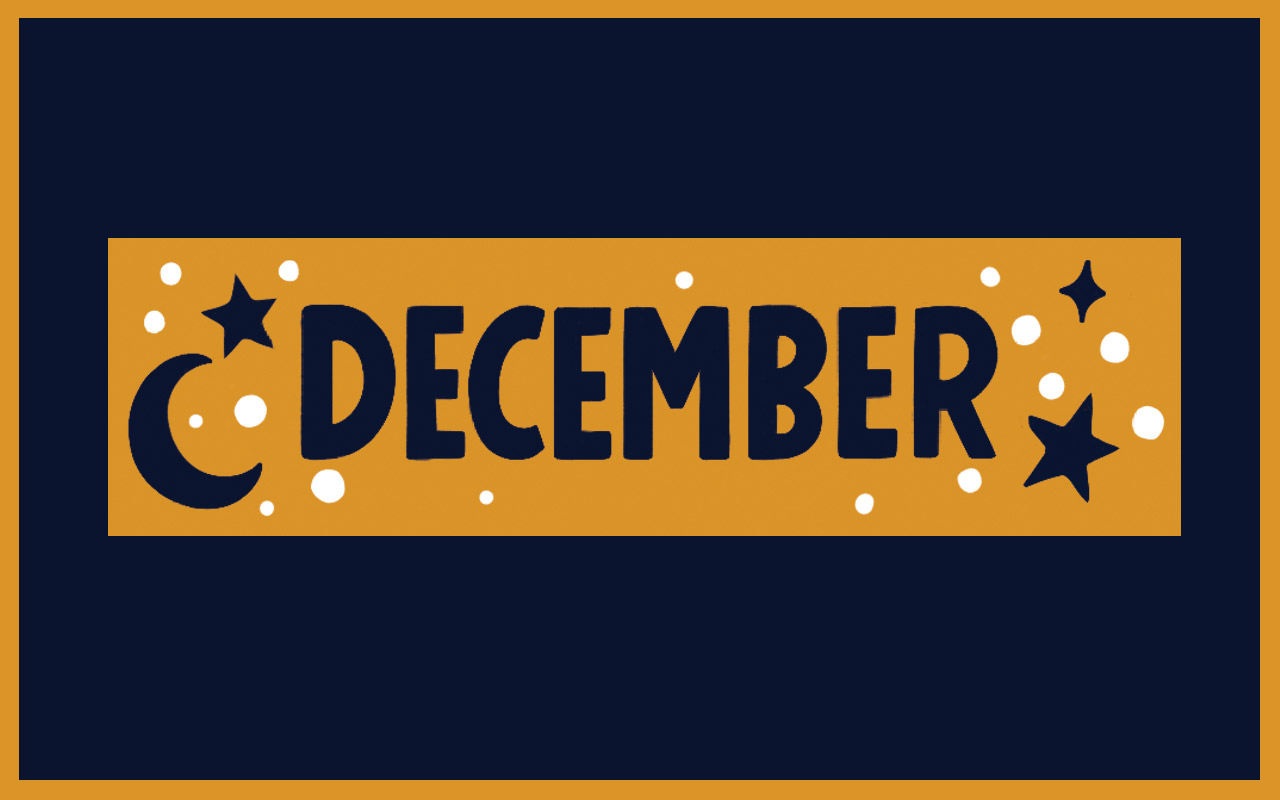
December
- Be charitable with a donor-advised fund. A donor-advised fund allows you to set aside money for charity now—and take a deduction on your tax return for 2020, if you itemize. But you can decide later which nonprofits will receive the money. You can contribute assets, including cash, stocks and mutual funds, and the money grows in the account through mutual funds or investment pools. If you have stocks or mutual funds that have appreciated in value, consider putting the shares in your donor-advised fund—you won’t owe capital gains tax on the increased value, as you would if you sold them. It’s a great way for families with multiple generations to decide together how to distribute their charitable dollars.
- Take your required minimum distribution. If you’re older than 70½, you have until the end of the month to take your 2020 required minimum distribution from an IRA.
- Shop for a new car. The end of the year is prime time to score a bargain on a new car as dealers try to reduce inventory and clear their lots of vehicles from the outgoing model year. Buyers get an average of 6.1% off the sticker price in December—the highest discount all year—and the best incentives, according to Edmunds.com.
Many brokers offer donor-advised funds; Schwab Charitable and Fidelity Charitable, for example, each require a minimum $5,000 contribution. Community foundations commonly serve as sponsors, too. Search for foundations in your area at www.cof.org/community-foundation-locator.
Profit and prosper with the best of Kiplinger's advice on investing, taxes, retirement, personal finance and much more. Delivered daily. Enter your email in the box and click Sign Me Up.

Lisa has been the editor of Kiplinger Personal Finance since June 2023. Previously, she spent more than a decade reporting and writing for the magazine on a variety of topics, including credit, banking and retirement. She has shared her expertise as a guest on the Today Show, CNN, Fox, NPR, Cheddar and many other media outlets around the nation. Lisa graduated from Ball State University and received the school’s “Graduate of the Last Decade” award in 2014. A military spouse, she has moved around the U.S. and currently lives in the Philadelphia area with her husband and two sons.
-
 Ask the Tax Editor: Federal Income Tax Deductions
Ask the Tax Editor: Federal Income Tax DeductionsAsk the Editor In this week's Ask the Editor Q&A, Joy Taylor answers questions on federal income tax deductions
-
 States With No-Fault Car Insurance Laws (and How No-Fault Car Insurance Works)
States With No-Fault Car Insurance Laws (and How No-Fault Car Insurance Works)A breakdown of the confusing rules around no-fault car insurance in every state where it exists.
-
 7 Frugal Habits to Keep Even When You're Rich
7 Frugal Habits to Keep Even When You're RichSome frugal habits are worth it, no matter what tax bracket you're in.
-
 Money for Your Kids? Three Ways Trump's ‘Big Beautiful Bill’ Impacts Your Child's Finances
Money for Your Kids? Three Ways Trump's ‘Big Beautiful Bill’ Impacts Your Child's FinancesTax Tips The Trump tax bill could help your child with future education and homebuying costs. Here’s how.
-
 Key 2025 Tax Changes for Parents in Trump's Megabill
Key 2025 Tax Changes for Parents in Trump's MegabillTax Changes Are you a parent? The so-called ‘One Big Beautiful Bill’ (OBBB) impacts several key tax incentives that can affect your family this year and beyond.
-
 What to Do With Your Tax Refund: 6 Ways to Bring Growth
What to Do With Your Tax Refund: 6 Ways to Bring GrowthUse your 2024 tax refund to boost short-term or long-term financial goals by putting it in one of these six places.
-
 What Does Medicare Not Cover? Eight Things You Should Know
What Does Medicare Not Cover? Eight Things You Should KnowMedicare Part A and Part B leave gaps in your healthcare coverage. But Medicare Advantage has problems, too.
-
 15 Reasons You'll Regret an RV in Retirement
15 Reasons You'll Regret an RV in RetirementMaking Your Money Last Here's why you might regret an RV in retirement. RV-savvy retirees talk about the downsides of spending retirement in a motorhome, travel trailer, fifth wheel, or other recreational vehicle.
-
 QCD Limit, Rules and How to Lower Your 2026 Taxable Income
QCD Limit, Rules and How to Lower Your 2026 Taxable IncomeTax Breaks A QCD can reduce your tax bill in retirement while meeting charitable giving goals. Here’s how.
-
 The Six Best Places to Retire in New England
The Six Best Places to Retire in New Englandplaces to live Thinking about a move to New England for retirement? Here are the best places to land for quality of life, affordability and other criteria.
-
 The 10 Cheapest Countries to Visit
The 10 Cheapest Countries to VisitWe find the 10 cheapest countries to visit around the world. Forget inflation and set your sights on your next vacation.
